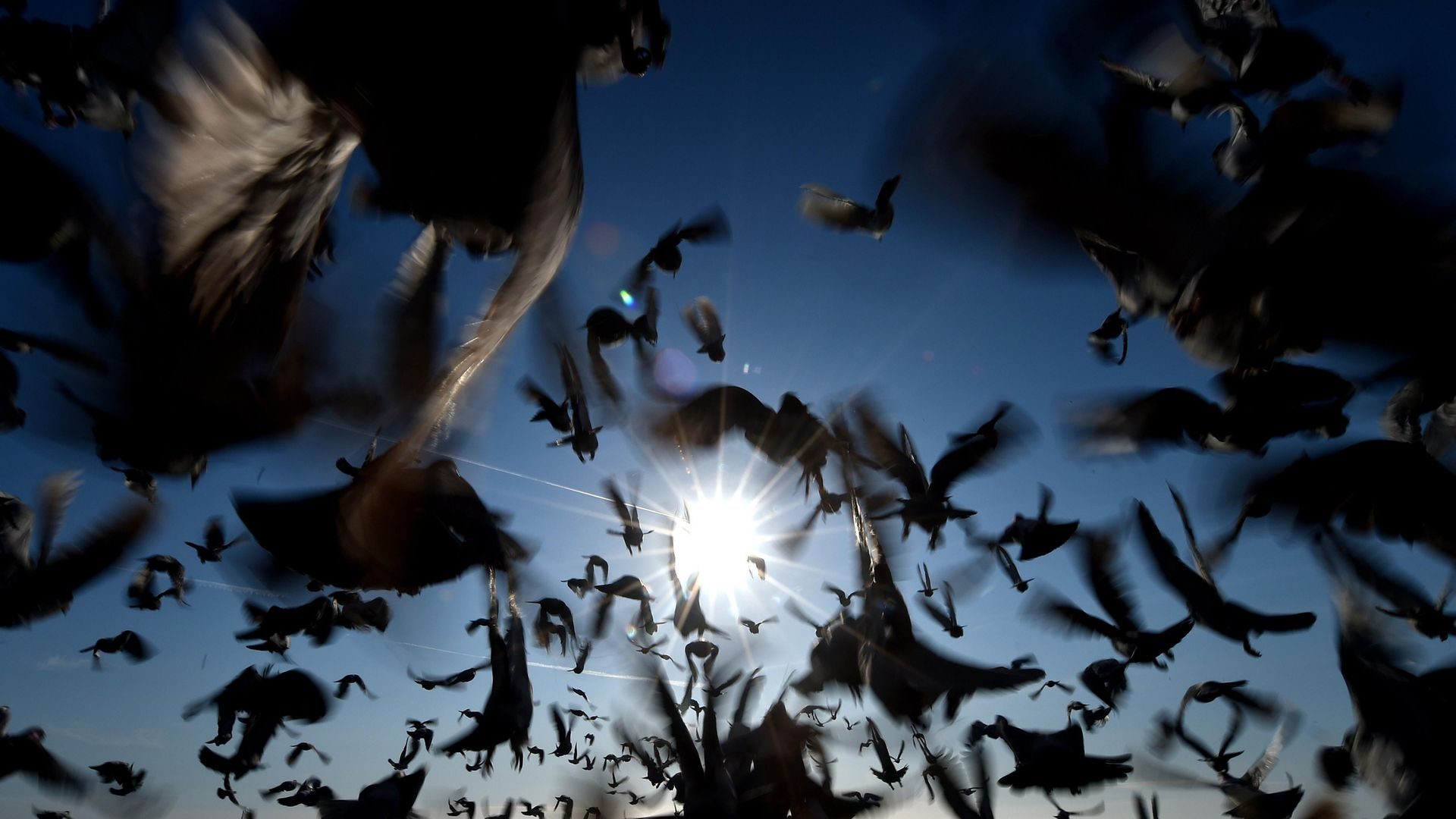For more than 120 years, Britain’s pigeon-fanciers have raced their birds across long distances in the sport’s most prestigious events – across the Channel.
Right up to the pandemic purpose-built lorries would arrive in Calais ahead of its load’s ‘liberation’ (the sport’s parlance for release) on French soil on a Saturday morning, with the birds racing to get home.
Britain’s relatively small size means that a pigeon-fancier in, say, Sheffield, would otherwise struggle to take part in long-distance races – even the Scottish highlands or the south coast would not provide the testing distances providing by crossing the Channel.
But all that came to an effective stop for the estimated 30,000 people in Britain involved in the sport last year – and the reason, predictably, is Brexit.
In April 2021 new EU Animal Health Laws came into force on the continent which, in a bid to avoid the import of diseases, introduced onerous new restrictions on taking birds into the bloc from “third countries” – that is, countries outside of the EU, like Britain (Northern Ireland is a slightly separate case).
“We’ve been taking pigeons into France more than any other European country for the purpose of racing for about 120 years now,” Ian Evans, CEO of the Royal Pigeon Racing Association (RPRA), told The New European.
“It’s a traditional thing – especially people who perhaps live from the Midlands up to the north of the country, for any kind of distance racing your only option was really to go into France.”
Prior to April of last year, he said, pretty much no paperwork was involved.
“When we left the European Union, obviously we became treated differently then, because we’re a third country,” said Evans.
“But even at the point of time we left, we’d have still been able to move birds into France and the other member states without any real paperwork, because under the animal health regulations in place at the time pigeons from third countries were exempt from any of the animal health requirements, which was in recognition of their low threat to any kind of spread of disease.”
On April 21 last year the new regulations came into force. “For third countries it basically meant that the pigeons would have to be quarantined in the country that they come from, quarantined in the country of destination, each pigeon would have to have a signed veterinary health certificate, and to get that health certificate they’d have to have negative laboratory tests for avian influenza and Newcastle disease [a highly contagious disease of birds] within 14 days of each movement.
“Well, I mean, that just made racing impossible, because you can’t quarantine birds – they’ve got to be fit. You can’t keep locking them up for any period of time. The onerous requirement of the health certificate just meant racing was virtually impossible.”
The industry has been lobbying both the Department for the Environment, Food and Rural Affairs (DEFRA) and the EU directly, seeking a compromise by which the veterinarian certificate remains but covers the convoy, not individual birds, and both the quarantine and laboratory tests are scrapped.
“To be fair to the EU, they did take it on board and recognise that perhaps this was a bit over the top, really, because the scientific proof out there, which includes European research, suggests pigeons’ threat of spreading avian influenza is very, very small, if any at all,” said Evans.
“Pigeons do get Newcastle disease, which is predominantly found in poultry, but since the ‘80s in order to take part in a pigeon race all the birds have to be vaccinated 14 to 21 days in advance.”
The issue is unfortunate at a time when the sport is trying to arrest a decline in its numbers. Although a report more than five years ago estimated it was worth £110m to the economy (and is now “probably a lot more”, according to Evans), the RPRA now has 18,500 members compared to 60,000 in the 1980s and has been running a campaign to take the sport into schools – six now have their own lofts.
DEFRA was “working hard behind the scenes”, he said. (The government publicly merely states the facts that “consignments must meet the EU’s import requirements and be accompanied by the appropriate export health certificate”).
“Obviously it comes lower on their list of priorities but nevertheless they have been working on our behalf to try and get this resolved,” said Evans.
He acknowledges that, ultimately, the issue is Brexit.
“Ultimately, yeah, we’d be subject to different regulations [if the UK was still in the EU],” he said.
“At the same time, back on April 21 last year, they did change the regulations for moving captive birds between member states as well, but of course those member states, being in the club, were able to get things changed quite quickly and they’ve got changes to legislation now, so they’ve continued to move pigeons between member states for racing purposes with no problem at all.
“The problem for us is obviously not being in the club, I suppose.”










